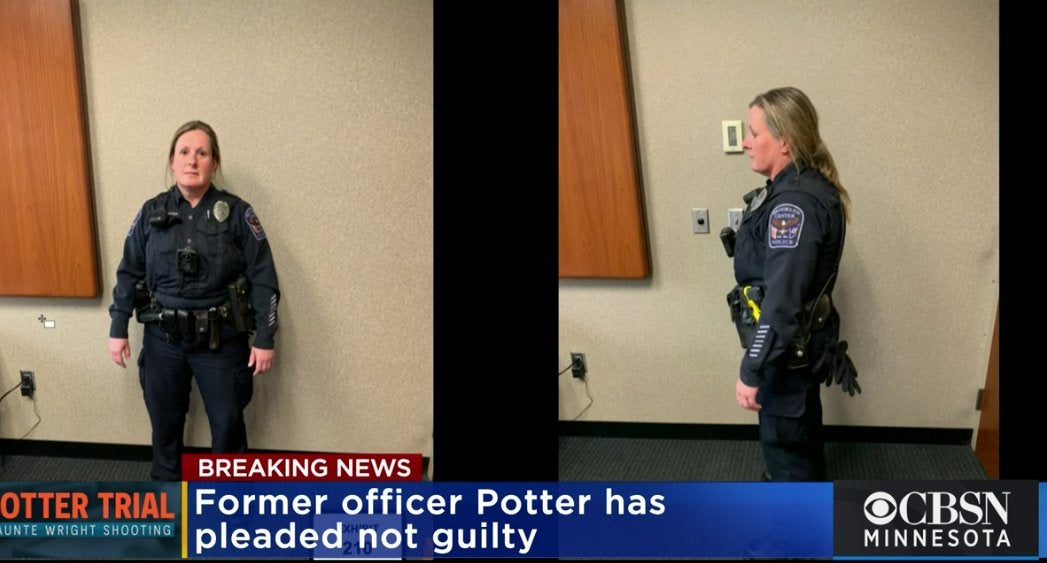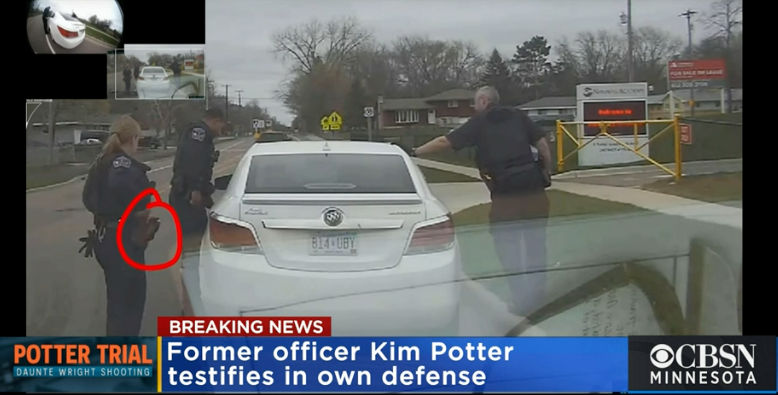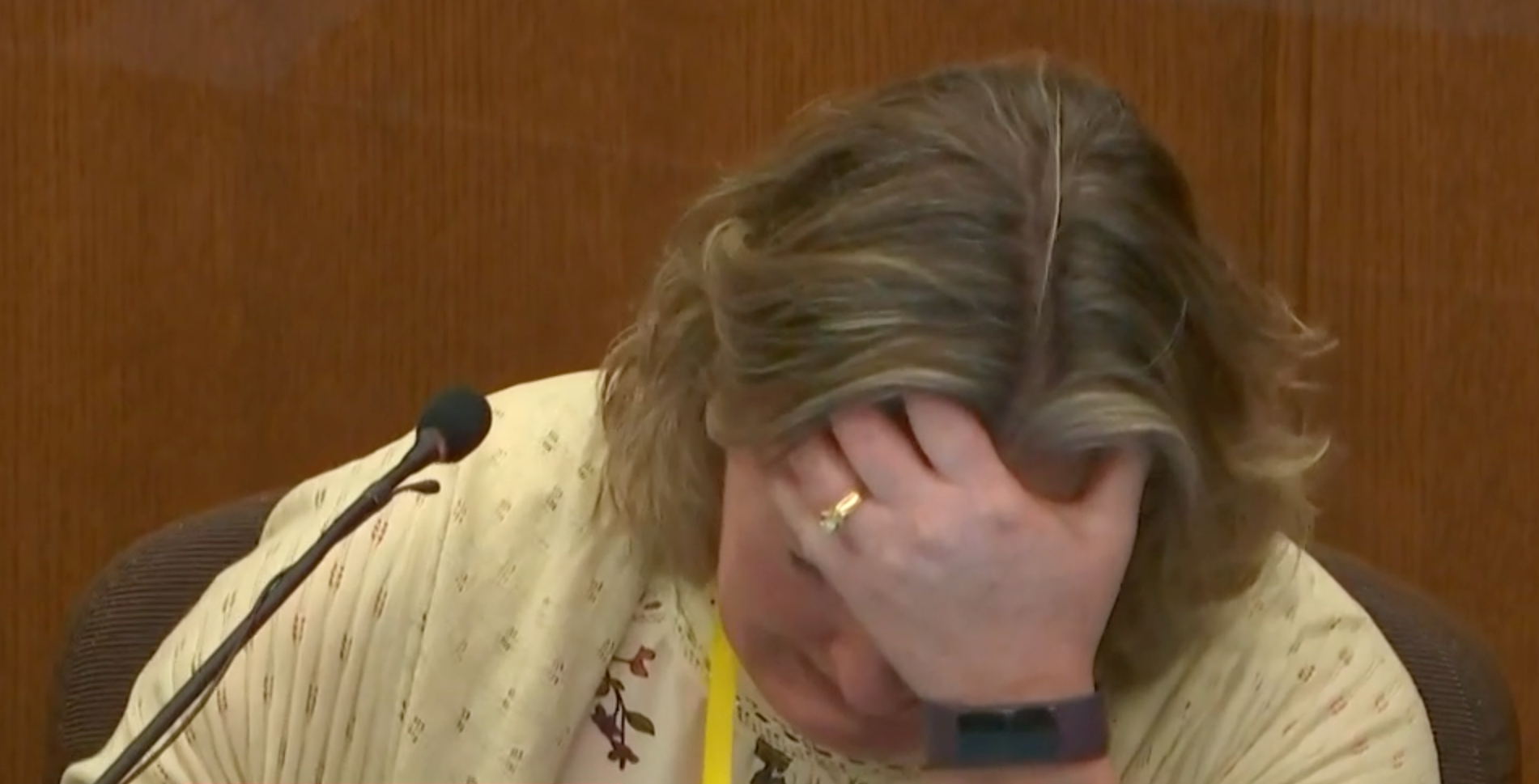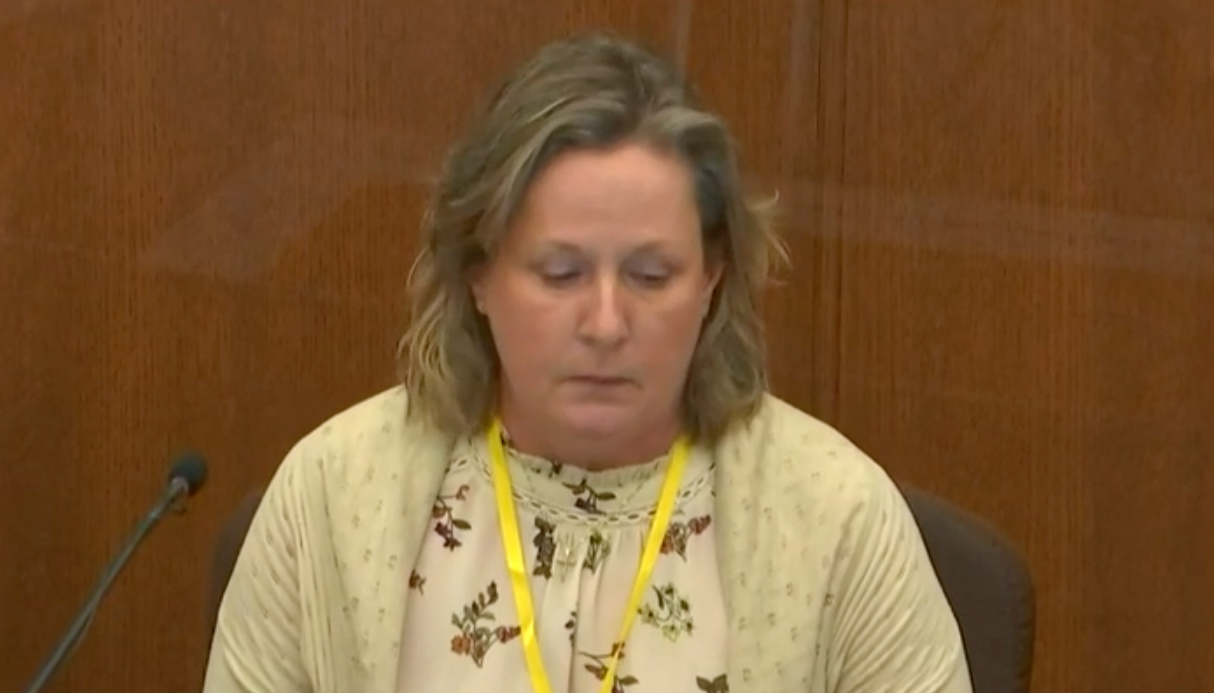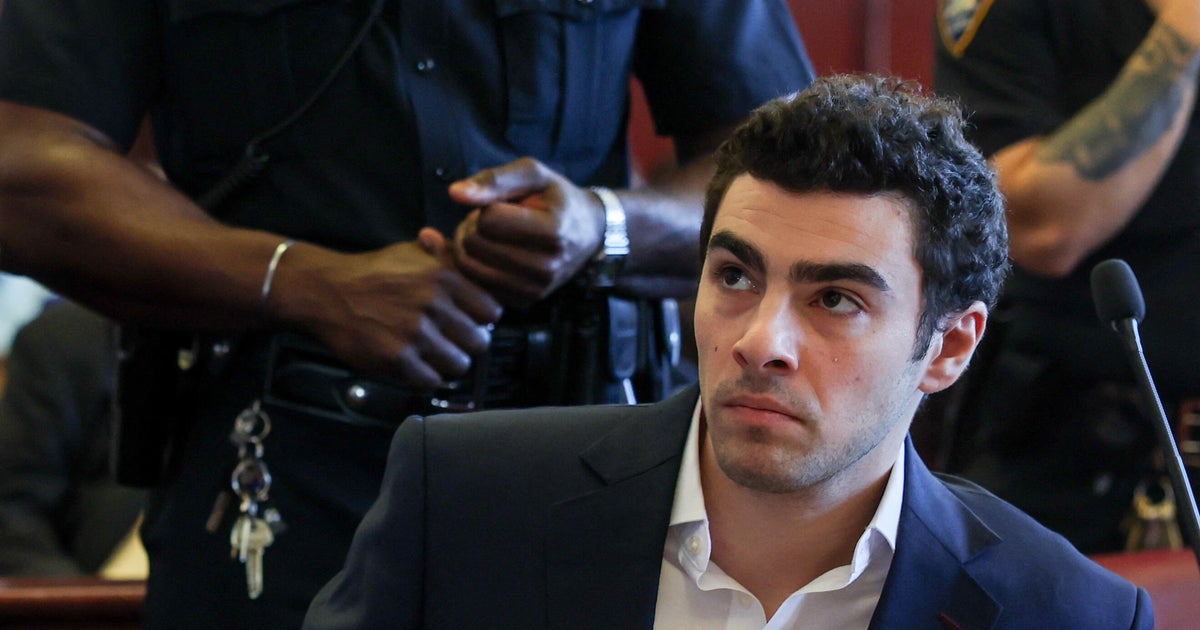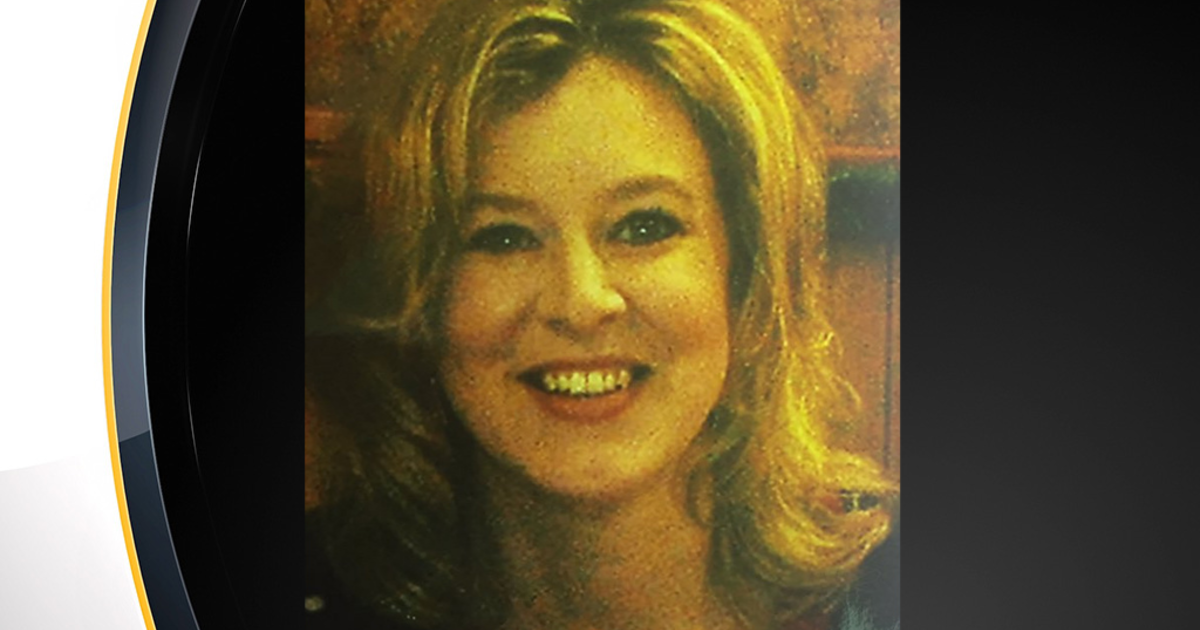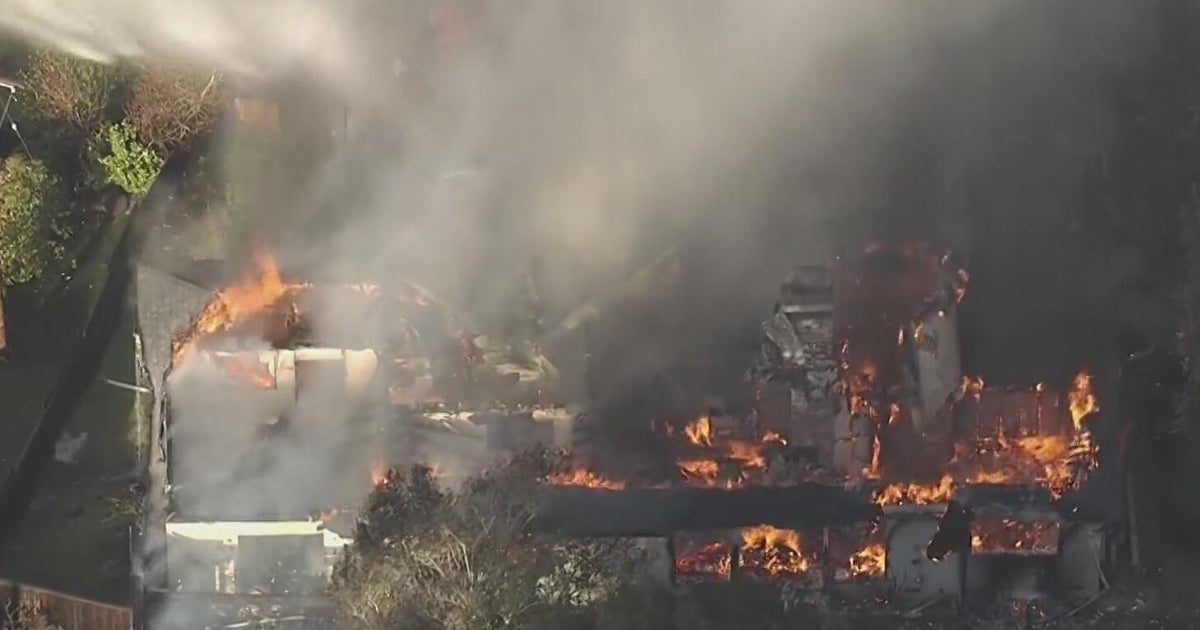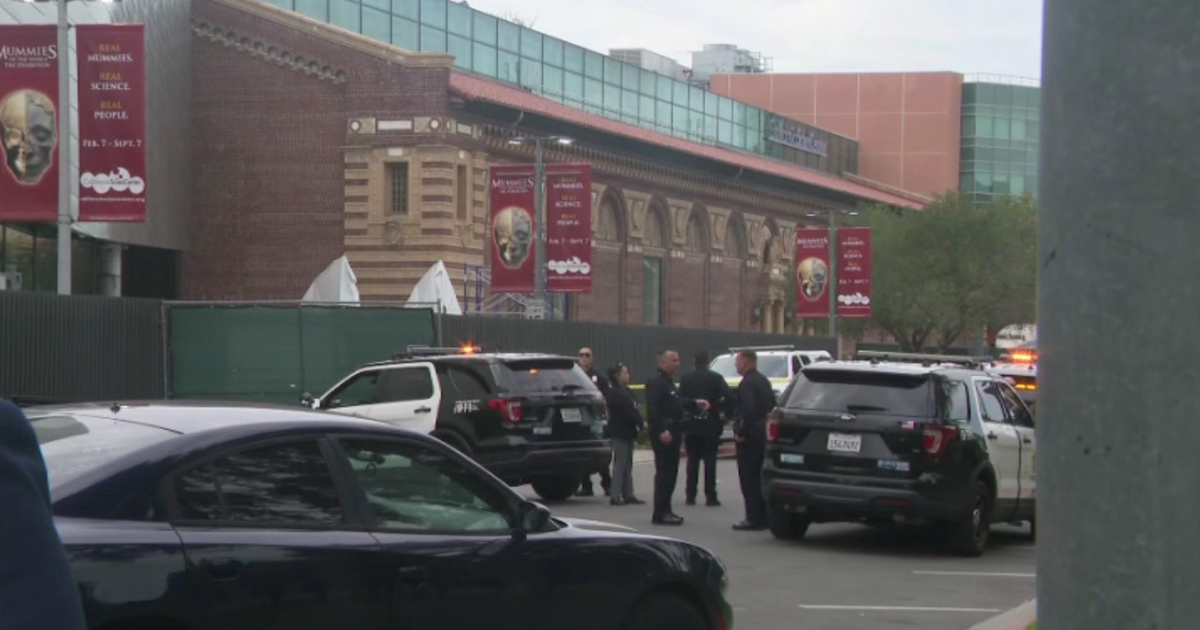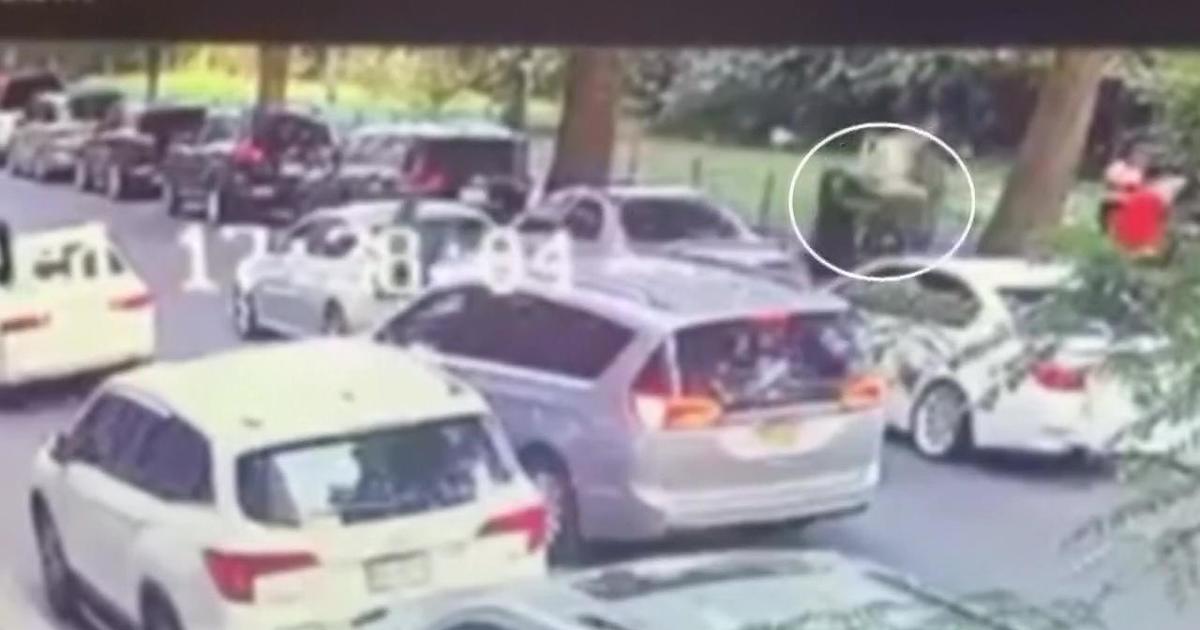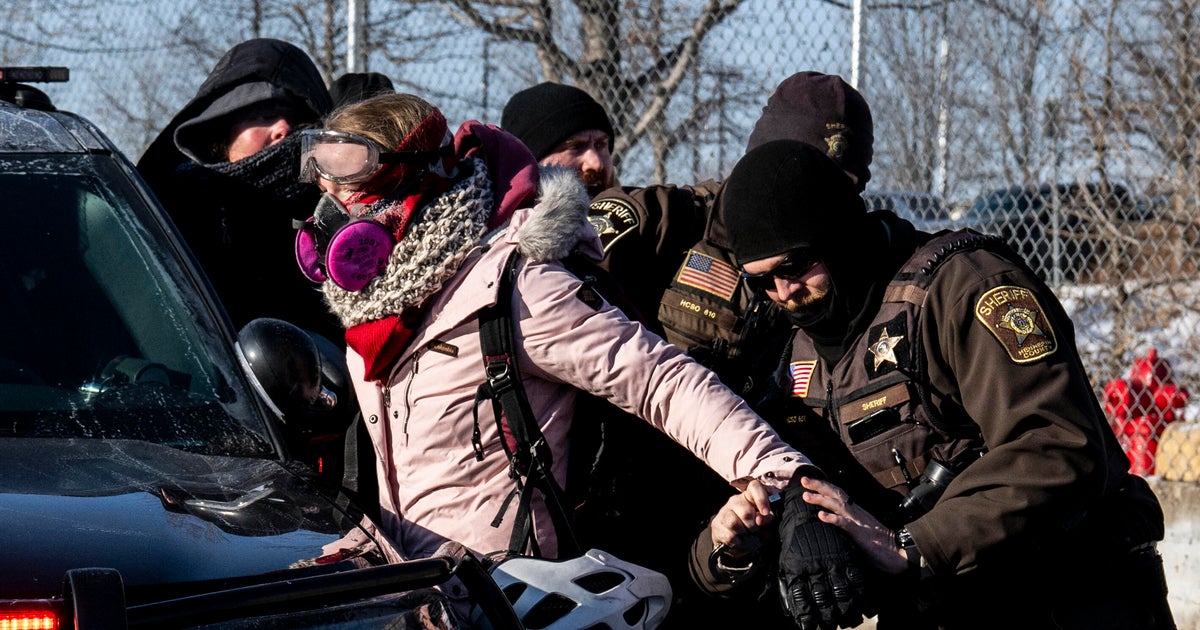Kim Potter Trial, Dec. 17: Potter Breaks Down On The Stand, 'I'm Sorry It Happened'
MINNEAPOLIS (WCCO) -- The defense rested its case Friday afternoon in the Kim Potter trial.
Following a packed day where the prosecution rested its case and the defense brought up multiple witnesses, the former Brooklyn Center police officer took the stand in her defense on Friday.
Court began Friday morning with testimony from psychologist Dr. Laurence Miller, who discussed the concept of "action error" – when someone does one thing while meaning to do another.
Court will resume on Monday at 9 a.m., and attorneys for both sides will attempt to convince the jury with closing arguments. Then, the case will be handed to the jury.
Check updates below, with the most recent at the top:
----
UPDATE (2 p.m.): The prosecution continues following a lunch break, as attorney Erin Eldridge continued to ask Potter questions about the shooting of Daunte Wright, particularly her immediate reaction. Potter remained emotional as she answered the questions, ultimately breaking down, "I'm sorry it happened."
Eldridge asks Potter about what she said after shooting Wright, about her comments "I'm going to prison," and "I just killed a boy." Potter says she doesn't remember saying those things.
Gray redirected Potter after that. Potter says the first time she saw the video was during a Zoom interview with Dr. Miller, who testified on Friday morning.
"Were you able to watch it?" Gray asks. "No," Potter responds.
Gray asks Potter to repeat, in her 26-year career, if she ever shot her gun at anybody. Potter says she never shot her gun, and never deployed her Taser before April 11.
Eldridge re-cross-examines and asks if Potter told Miller she resigned to "protect [her] police family." Potter says yes.
Gray then asks if Brooklyn Center Police was like Potter's "second family," and Potter agrees. With that, the defense rested and Potter was excused from the stand.
The prosecution opted to not call a rebuttal witness, even though it had been discussed prior to Potter taking the stand.
Judge Chu re-instructed the jury, at length, to avoid all contact with any media that might discuss the case, to not talk about the case (even with family members), and to have a good weekend.
UPDATE (12:35 p.m.): Criminal defense attorney Joe Tamburino, who isn't affiliated with the case, discussed Kim Potter's testimony so far.
UPDATE (11:45 a.m.): The state's cross-examination addresses training and being prepared for incidents that occur during the line of duty.
Attorney Erin Eldridge notes that use-of-force training is a key component of being a police officer. Kim Potter agrees. Prosecution asking one question after another about training, even noting how many hours are involved for officers.
Potter says that she switched which side she carried her Taser on her left side when they were issued new holsters, but isn't sure when that was.
Prosecution calls up policy that includes training that includes "performing reaction-hand draws or cross-draws to reduce the possibility of accidentally drawing and firing a firearm."
Eldridge calls up photo showing Potter carrying Taser on left side and firearm on right side. Eldridge asks if Potter understands that the Taser and firearm weigh differently, with the Taser weighing less. Potter says she "doesn't know."
Upon questioning of the events of April 11, Potter says pulling Wright's vehicle over with expired tabs or a hanging air freshener wouldn't have been a routine stop because "no stop is routine."
State pulls up pictures of Potter before the shooting, asking if she's unsnapping her firearm with her right hand. Potter doesn't affirm.
State asks Potter if Wright attempted to assault Officer Luckey, or said that he had a gun, and Potter said he didn't.
State calls up video of Potter's body camera footage right before shooting, and Potter is becoming increasingly emotional. State is asking about a piece of paper that she took from Wright and asks if she's holding it in her right hand. She says she is.
After the state shows more video of the seconds before the shooting, and asking if Potter was holding a pistol in front of Wright, Potter begins crying and the judge asks if she needs a break.
Potter agrees that she needs a break and court takes a break.
"It just went chaotic." - Potter
UPDATE (11:24 a.m.): Former Brooklyn Center Police Officer Kim Potter begins discussing the events of April 11 leading up to the shooting of Daunte Wright.
She says the first thing they noticed of the vehicle is that the motorist made an inappropriate turn signal. She said Officer Luckey, who she was training, wanted to stop the vehicle for an illegal air freshener and expired tabs.
If she were not training that day, she says she likely would not have stopped the vehicle. She says they had been instructed not to stop vehicles for tabs given the delay many had renewing them. She said the air freshener also wouldn't have been a big enough deal to pull someone over.
She says that when stopping any vehicle, it has the potential to be considered a dangerous situation, because of the unknowns.
Potter says that Wright didn't give Officer Luckey any government-issued ID. When they ran his name, they found the protection order and a weapons warrant. She noted that there was a female with Wright, in the context of the protection order.
Potter says Luckey reported a strong smell of marijuana and seedlings in the center console.
When asked about the plan for the arrest, Potter says Luckey was going to attempt to get Wright in custody for the warrant before they investigated who the female passenger was.
Increasingly emotional, Potter recalls when the struggle began during the traffic stop of Wright.
"It just went chaotic," she says, beginning to break down on the stand. "I remember yelling 'Taser, Taser, Taser' ... and then he told me I shot him."
She says she does't remember much immediately following the incident, including saying that she was going to prison following the shooting. She remembers sitting on the floor in the police station, and believes she remembers the moment her husband came to her. She begins crying again as she recalls quitting a couple days later.
She says she has undergone therapy following the shooting of Wright.
Defense ends its questioning. Prosecution begins cross-examining Potter.
UPDATE (10:56 a.m.): Former Brooklyn Center Police Officer Kim Potter is taking the stand in her own defense. Her husband is among those in court. The first part of testimony runs through her background and experience with Tasers.
She began by going through her background, including her first work in law enforcement as a school patrol officer in junior high. Joined the Fridley Police Explorers after seeing a booth while attending Totino-Grace High School.
While attending St. Mary's in Winona, Kim Potter testifies she majored in criminal justice and sociology with an emphasis on elderly studies.
"I had an interest in serving the older community and understanding their needs and thoughts," she said.
Potter says she interned at the Columbia Heights Police Department. She says she served as a security officer at Anoka State Hospital. She then joined Brooklyn Center Police Department in February 1995.
Potter says she wanted to work in the community and did not wish to work in administration. Gray asks her to talk more about her work as a field-training officer, which she says she's done for more than 10 years.
She says she served on domestic abuse intervention program for 10-12 years, "maybe more, maybe less." She says the program exposed her to successes but also "very sad failures."
Potter also testified that she worked as a hostage negotiator for barricaded subjects, those being arrested on warrants.
Potter testifies she also served on the honor guard for law enforcement memorials. Upon questioning from Gray, she says she carried casket for Scott Patrick from Mendota Heights PD. Patrick was killed in a traffic stop shooting.
In her 26 years with the Brooklyn Center PD, Potter says she has never had a misconduct complaint from the public.
When asked about Taser use, Potter says she has pulled her Taser on occasion during her police work, but says she never deployed it, as far as she can remember.
UPDATE (9:53 a.m.): The state, Attorney Erin Eldridge, begins cross-examining psychologist Dr. Laurence Miller, who discussed how "action error" was a factor in the shooting of Daunte Wright.
Eldridge highlights Miller's close work with police departments and police officers, confirming that he often testifies for them in cases. She asks if it's a big income generator for him, and Miller says it is.
Eldridge asks about stress management for police officers. Miller says it's an important part of police work, and agrees that more training and experience leads to better management of stress.
Moving back to "action errors," Eldridge asks that since it's a known phenomenon in everyday life there are "checks on the system" to address action errors in many professions like aviation, medicine, and law enforcement.
Miller says that law enforcement is still evaluating strategies to prevent fatal action errors. The "checks" are not as well developed as in the aviation or medical fields, he says.
After short questioning by defense and then the state again, Miller is excused from the stand and the jury goes on a 20-minute break.
During sidebar, Judge Regina Chu said that while she had ruled there could be testimony on slip and capture, nobody could testify that that actually happed with Potter. So the state will be allowed a rebuttal witness, and if the witness opens the door to that, Miller could be recalled.
UPDATE (9 a.m.): The defense brings its first witness of the day to the stand, psychologist Dr. Laurence Miller.
Miller, 70, has been a licensed psychologist for over 30 years, and has written several books and articles on the subject. He has a Ph.D. in clinical neuropsychology and his thesis was about the brain functionings of psychopaths.
He charged a $30,000 retainer fee for his work in the case.
After questions about his background, Miller is asked to discuss human consciousness and the brain. Much of what we do in everyday life "achieves a certain automaticity," Miller says. His example: driving a car. In the beginning, he says it seems "impossible," but after a certain amount of time, people can drive without thinking too much about it.
Attorney Paul Engh is asking Miller about technical terms in his field: system 1 and system 2. Miller says system 1 involves things that don't take conscious deliberation. System 2 involves more deliberative thinking. But these systems work in coordination, Miller adds.
As expected, Miller explains the concept of "action error."
"You intend to do one thing, think you're doing that thing, but do something else and only realize later that the action you intended was not the one you took," he says.
Everyday examples include writing the wrong year on a check in the new year, Miller says. He says many professions have examples of action error, including the medical and aviation field.
"They think they are doing thing 1, and they are doing thing 2," he says.
Miller says, during high stress moments, people can do things they don't intend to do.
Miller says he's been involved in cases where action error involves a police officer, including deadly force. Factors contributing to action errors in law enforcement include situations of compressed time frame, threat to life and safety, and changing circumstances.
He says that "weapon confusion" is a subset of action error. Confusing a Taser and a handgun is the most typical example of weapons confusion.
In the aftermath of an action error, the police officer sometimes doesn't remember the event, Miller says. Officers are surprised and don't recall certain parts of the scene itself.
----
Arguably the most compelling testimony Thursday came from former Brooklyn Center Police Chief Timothy Gannon, who resigned shortly after the shooting of Daunte Wright on April 11.
During his testimony, Gannon said he resigned due to "political pressures."
"One of the reasons I was required or requested to leave the agency was because I would not immediately fire Kim Potter," Gannon said.
Gannon said he "saw no violation of [department] policy, procedure or law" when he watched video of the incident. He said he formed his opinion on reasonable use of deadly force only from squad car video, but he added that he had not reviewed Sgt. Johnson's body camera video.
The defense's first witness was use-of-force expert Stephen Ijames. Ijames said that he thought Potter's intended use of a Taser would have been consistent with police training, and that an officer potentially being dragged by a vehicle would justify deadly force.
The prosecution's key witness, use-of-force expert Seth Stoughton, testified Wednesday that even if Potter had meant to use her Taser, that would have been "unreasonable." He said a reasonable officer in her position "would not have concluded that there was an imminent threat of death or great bodily harm, and thus the use of force was excessive."
Daunte Wright's father, Arbuey Wright, offered "spark of life" testimony Wednesday.
"To see him as a father, it was like, I was so happy for him, because he was so happy," Arbuey Wright said. "He was so happy about Junior. It was my chance to be a grandfather."
During jury selection, Judge Regina Chu told jurors she expected to finish the trial before Christmas Eve.
